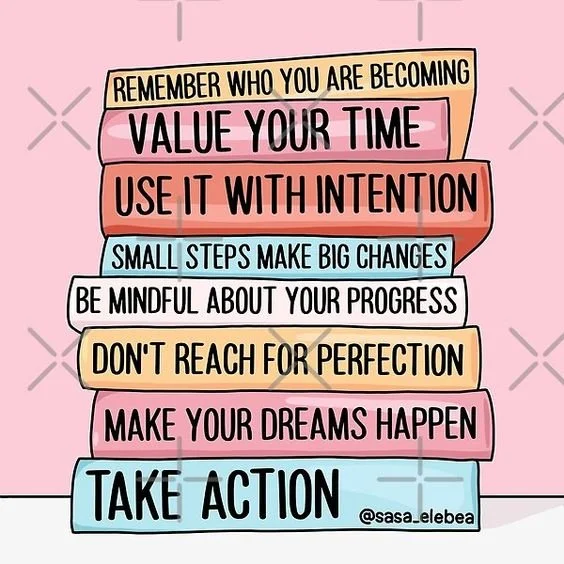5 Signs of Teacher Burn-out and How to Prevent It
The last three years in the world of education have been H-A-R-D. Like really, really hard. Learning new learning management systems, combating student apathy, student depression, student learning fatigue, and to top it off, the horrid climate of education that we are in. Then there are the politicians attacking any whiff of equitable teaching practices.Because teaching empathy, social-emotional learning, or accurate history will make our students… critical thinkers? God forbid we have an empathetic and critically thinking voting base…ew, that sounds horrid! But, all jokes aside, the current climate has led to some serious teacher burnout. It is evident when we see the statistics that “A staggering 55 percent of educators are thinking about leaving the profession earlier than they had planned.” So, what are the signs of teacher burnout and how can we prevent it?
The World Health Organization defines burn-out as “a syndrome conceptualized as resulting from chronic workplace stress that has not been successfully managed.” (Sounds about right).
But, how do we know if we are burnt-out…or if it is something else entirely? Here are some questions the Mayo Clinic created to assess whether you are experiencing job burn-out:
Have you become cynical or critical at work?
Do you drag yourself to work and have trouble getting started?
Have you become irritable or impatient with co-workers, customers or clients?
Do you lack the energy to be consistently productive?
Do you find it hard to concentrate?
Do you lack satisfaction from your achievements?
Do you feel disillusioned about your job?
Are you using food, drugs or alcohol to feel better or to simply not feel?
Have your sleep habits changed?
Are you troubled by unexplained headaches, stomach or bowel problems, or other physical complaints?
If you answered yes to any of those (or all of them), you are most likely experiencing job burn-out.
The Signs of Burn-out
While signs of burn-out may vary, the typical signs of burn-out include the following:
lack of energy
exhaustion
irritability
negativism or cynicism related to one's job
reduced personal accomplishment/performance
Burnout can lead to physical, emotional, and behavioral symptoms as well.
Physical symptoms include the following:
feeling tired
having difficulty sleeping
experiencing a change in appetite
dealing with headaches or muscle pain
Emotional symptoms include the following:
lacking motivation
experiencing feelings of self-doubt
failure or loneliness
an overall feeling of dissatisfaction
Behavioral symptoms include the following:
social isolation
not performing your responsibilities
work-related anger outbursts
Causes of Burn-out
The Mayo Clinic suggests that the possible causes for job burn-out include:
Lack of control. An inability to influence decisions that affect your job — such as your schedule, assignments or workload — could lead to job burnout. So could a lack of the resources you need to do your work.
Unclear job expectations. If you're unclear about the degree of authority you have or what your supervisor or others expect from you, you're not likely to feel comfortable at work.
Dysfunctional workplace dynamics. Perhaps you work with an office bully, or you feel undermined by colleagues or your boss micromanages your work. This can contribute to job stress.
Extremes of activity. When a job is monotonous or chaotic, you need constant energy to remain focused — which can lead to fatigue and job burnout.
Lack of social support. If you feel isolated at work and in your personal life, you might feel more stressed.
Work-life imbalance. If your work takes up so much of your time and effort that you don't have the energy to spend time with your family and friends, you might burn out quickly.
How to Combat Burn-out
So, how do we combat teacher burn-out? What can be done? First and foremost, we have to admit that we are burnt-out. The only way to fix a problem is to admit that there is a problem in the first place.
Next, we need to ask for help. Asking for help can be super complicated, especially if you are the type of teacher that likes to handle all of your problems on your own. Start by talking with your teacher bestie. Sometimes just talking about your struggles can have a huge benefit. Next, talk to a trusted administrator. Let them know that you may need a little help or support. If you don’t feel comfortable talking to admin, do you have a trusted counselor you can talk with? Also, don’t forget your family. If you have a partner, ask them for help.
Last, set up some clear boundaries. It is more than ok to say no. Just say no to the after school program, leadership, lunch supervision, that committee that meets once a week/month/whatever. Just say no! If your school is asking for extras, say no thanks. Many times schools function because of the free labor we provide, and that is not ok.
You can also check out some of our other blog posts we have written about finding that work/life balance. One size does not fit all when it comes to combatting teacher burn-out.


